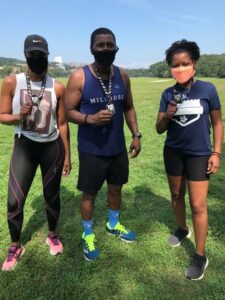New Yorkers need your help! Opioid overdoses are on the rise due to Covid-19 and accessing treatment in our community has become more difficult. Please join me for our “Run for Your Life” Virtual 5K this September to help raise awareness about addiction, homelessness, and mental illness. Click here to register online!

This Saturday, the Run for Your Life team will resume training in Central Park. The team will meet at 8:00 am in front of the boathouse at the bottom of Cat Hill. For those traveling via public transportation, take the #6 train to 68th Street/Hunter College, then walk to 72nd Street and 5th Avenue. Once you enter the park, walk straight ahead until you reach the road; bear to the right until you see the boathouse on the left-hand side.
All participants must follow CDC guidelines by wearing face masks and maintaining 6 feet of distance during the workout session.
Running in recovery from alcoholism and addiction
By Michael D.
Running and keeping fit in recovery from alcoholism has helped me more than AA!
Running has been a great help to me in the years I have been in recovery. I can see the changes in my body, feel much stronger, and can breathe easier. I am much happier, can sleep better, and am much more motivated throughout the day. I was encouraged to run years ago when I was depressed but did not want to as I felt so tired. I think if I had started exercising more back then, I would have avoided many problems later on. It has probably helped me more than joining a recovery group like AA!
Running releases a lot of endorphins, which are natural opiates. If you are a regular runner, you will find the effect more powerful; this is sometimes referred to as the “runner’s high.” It can help motivate you to keep exercising. Endorphins are often produced by drug use, which makes you feel good for a while. So running is a much more useful way of making yourself feel happy and it also obviously helps your cardiovascular system. When you are reasonably fit, the chemicals will leave you feeling energized after a run and will help you throughout the day.
Coach Andre’s tips:
Partnering with other running groups, whether recovery-based or not, can be just what we need to battle the disease of excuses. External motivation can be a very powerful tool when we find ourselves making excuses or slacking off. I usually take a pair of running shoes with me whenever I’m visiting family or going away on a formal business trip. The first thing I do after checking in with family or friends is to put on my running shoes and head out for a 3-4 mile run. On many of these occasions, I run into a runner or two and greet them with a smile, which increases my internal motivation to get back out there running again the next day.

